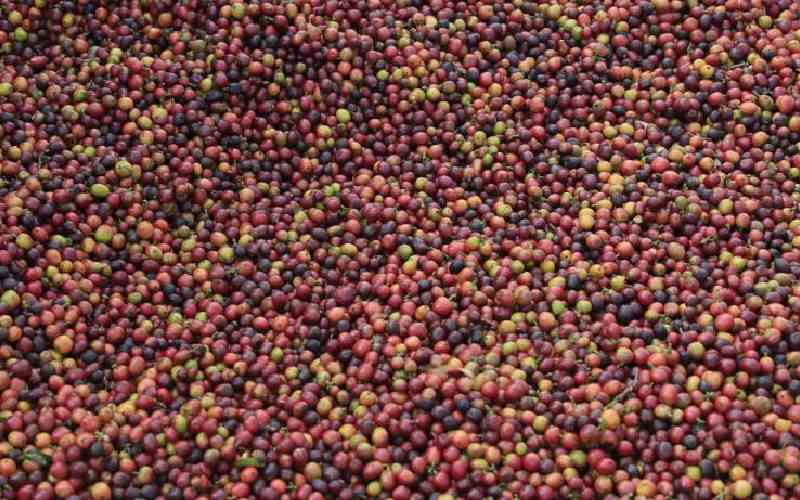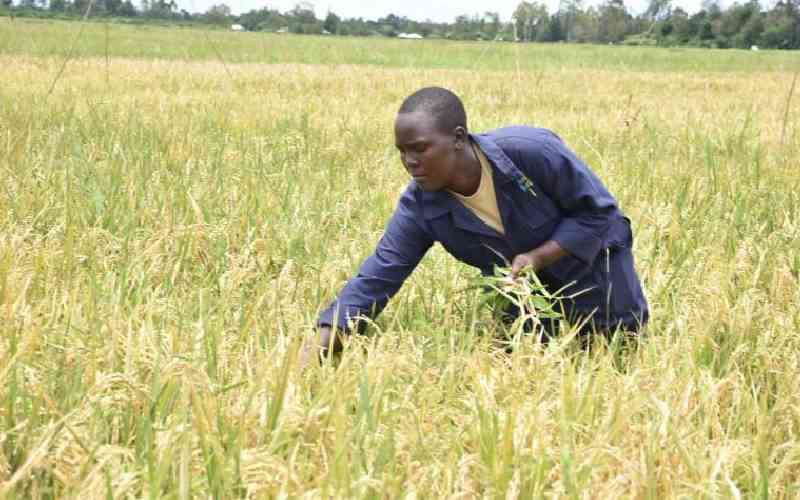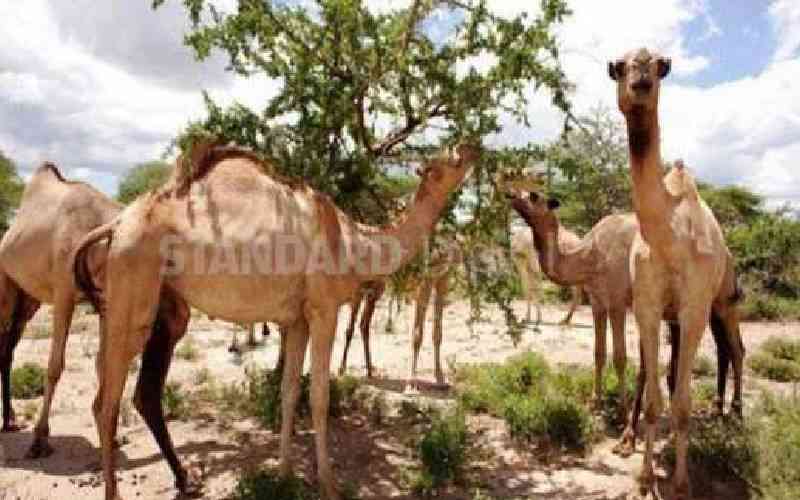By Patrick Muthuri
For residents of Tigania East District, the onset of the dry period in the neighbouring counties inhabited by pastoralists, spells the start of conflict.
Every year villagers in Matabithi, Mweronkoro, and Mara are faced with serious challenges as the pastoralists invade their farms with their animals causing heavy losses.
In a recent incident, the police and provincial administrators had to intervene and calm tempers as the villagers and the pastoralists engaged in heated exchange.
Julieta Kanini, one of the affected farmers, had gone to tend to her crops in the morning only to be met by shocking sight. Whereas she had left the crops healthy the previous evening, the view that greeted her that morning almost gave her a heart attack. The farm was bare with all the crops either eaten or trampled on. The evidence of what had transpired in her farm was heaps of fresh camel dung strewn.
Such destruction is a major blow to poor residents who rely on subsistence farming after they discarded pastoralism and it threatens to intensify the effects of recent drought. Kanini says the seeds she had planted were hard to acquire due to drought and famine.
"If the Government does not come to our rescue we are likely going to rely on relief food despite the rains. This is a painful loss because some of us were buying bean seeds at Sh100 per kilo. We were given loans to buy seeds hoping to repay once we harvested.
I have lost acres of beans, maize, sorghum, and green grams," Kanini says. The area was part of a vast arid grazing land for nomads who move into the area when drought intensifies in Isiolo, Wajir, and Marsabit. However, residents of Meru North have started discarding pastoralist lifestyle and converting the fertile grazing lands into farmlands.
Farming not recognised
Area Councillor, James Kirea, says over 10 acres of farmland were destroyed by the camels, brought to the area due to its proximity to Isiolo town, where camel milk is fetching handsome prices of up to Sh40 per litre.
"The pastoralists are used to migrating to the area when there is drought because it was initially a grazing area.
But for the last 10 years the residents have been practicing farming, which pastoralists do not recognise.This has forced some people to leave the area due to losses," Kirea says. Due to the permanent settlement by the farmers, projects, including a health centre, green houses and boreholes have been set up in the area – developments that the pastoralists are not too keen on.
Mr Japhet Nkomera, who is bitter over the destruction of crops, sees malice in the invasion and destruction of their crops.
"The herders are plotting to force us out of this place. If they destroy our crops they know we would have nothing to look forward and for fear of starving we would leave. This must be a well-organised plan to kick us out of our land. The Government should come to our rescue," he says. He notes that the herders have caused fear, as they are armed and threaten those who resist their invasion. Councillor Kirea says their stay may develop into a fight as they defiantly invade farms.
The area is also prone to conflicts due to lack of title deeds. Kirea says they are surveying the land to give farmers proof of ownership. "When the farmers claim the land is theirs, the herders challenge them to produce title deeds because they know the farmers don’t have them," he says.
Stay informed. Subscribe to our newsletter
Tigania East acting DC Patrick Kimolo says several herders have been arrested over the damage and arraigned in court for destruction of property, while police are holding 27 camels. "I appeal for both sides to uphold peace. If the herders do not move away from people’s farms we are ready to do a massive operation to force them out," the DC says.
In the meantime, the victims are hoping they would be compensated.
 The Standard Group Plc is a
multi-media organization with investments in media platforms spanning newspaper
print operations, television, radio broadcasting, digital and online services. The
Standard Group is recognized as a leading multi-media house in Kenya with a key
influence in matters of national and international interest.
The Standard Group Plc is a
multi-media organization with investments in media platforms spanning newspaper
print operations, television, radio broadcasting, digital and online services. The
Standard Group is recognized as a leading multi-media house in Kenya with a key
influence in matters of national and international interest.
 The Standard Group Plc is a
multi-media organization with investments in media platforms spanning newspaper
print operations, television, radio broadcasting, digital and online services. The
Standard Group is recognized as a leading multi-media house in Kenya with a key
influence in matters of national and international interest.
The Standard Group Plc is a
multi-media organization with investments in media platforms spanning newspaper
print operations, television, radio broadcasting, digital and online services. The
Standard Group is recognized as a leading multi-media house in Kenya with a key
influence in matters of national and international interest.








